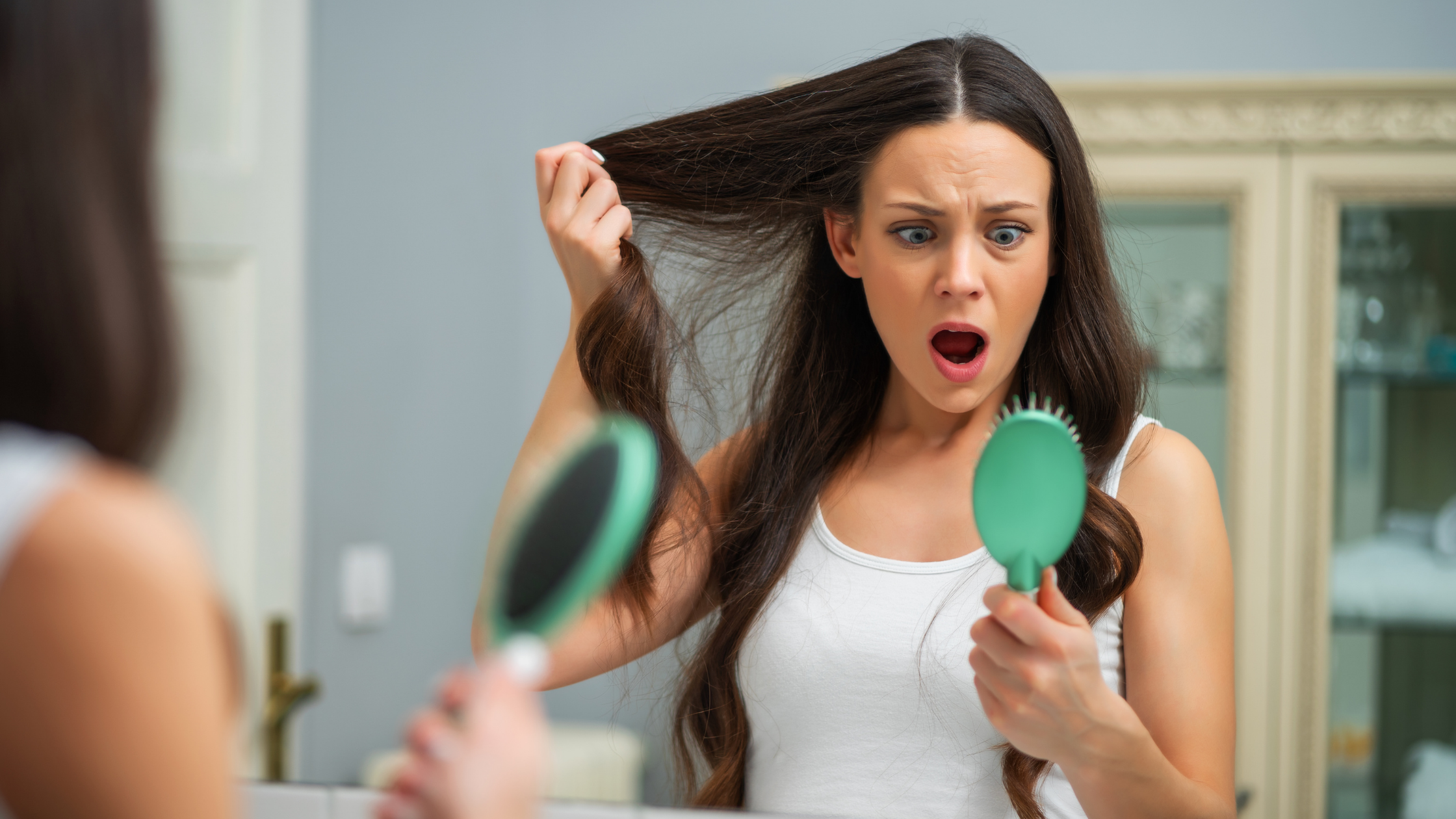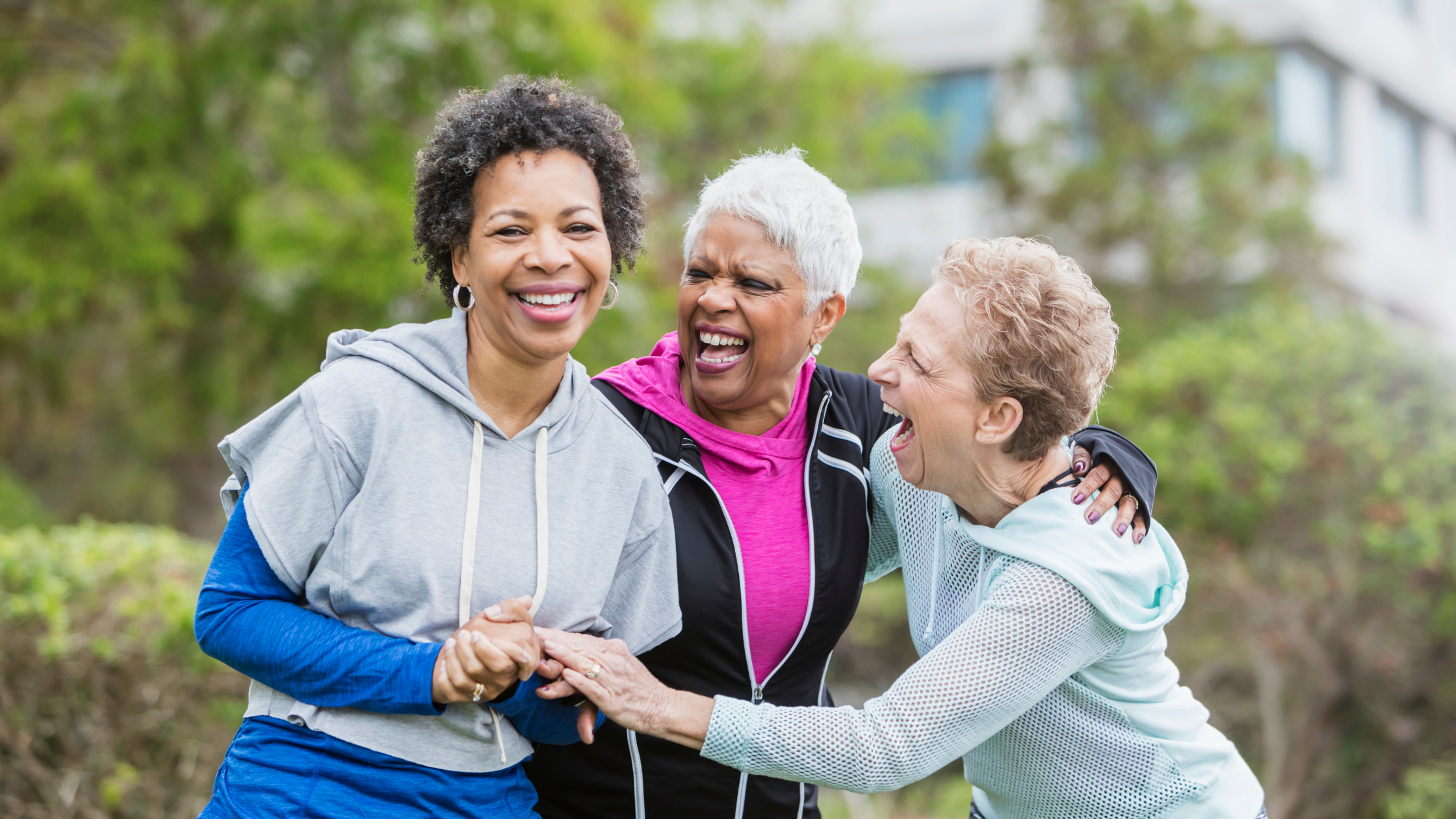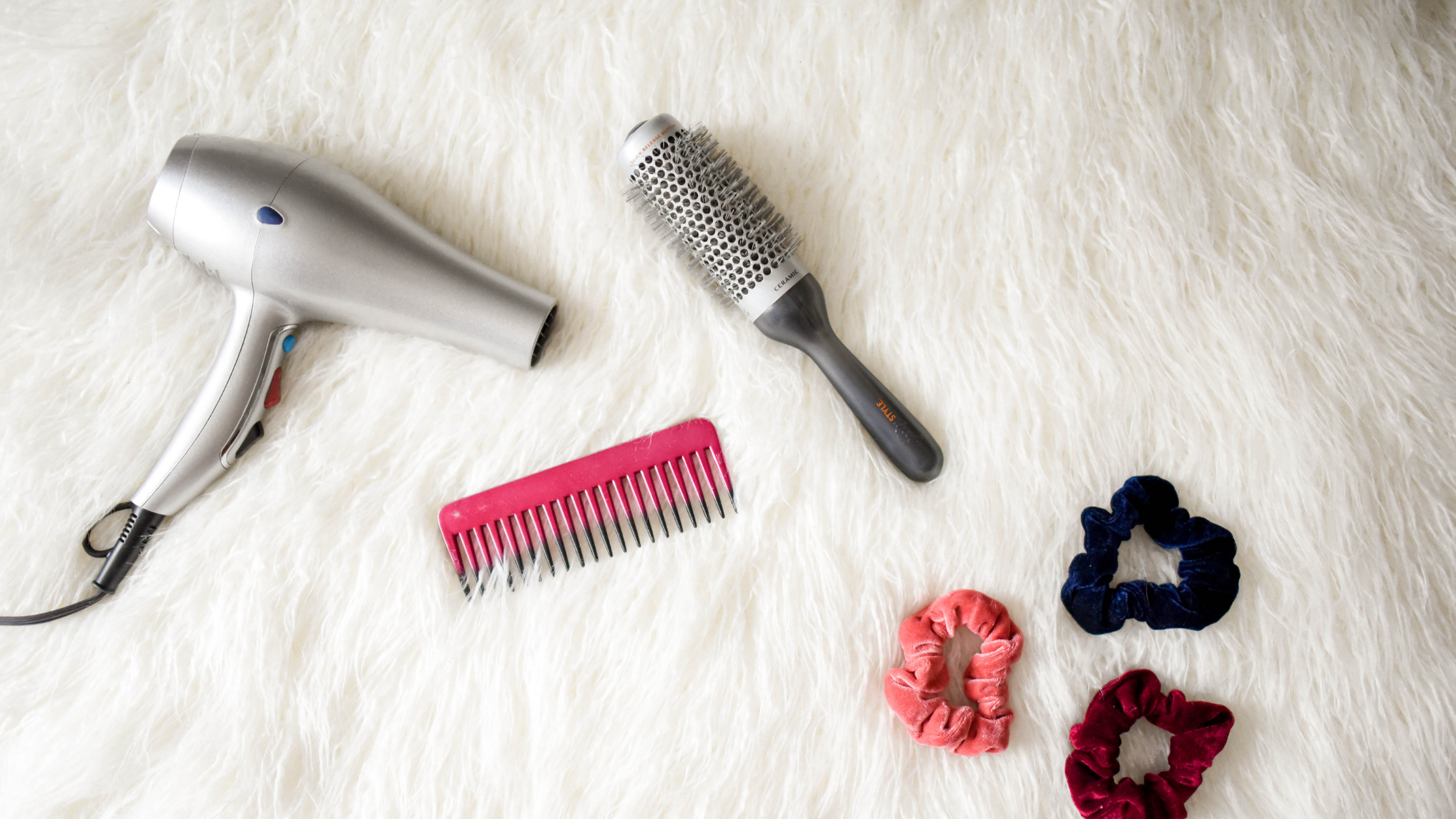Help, I'm Losing It! 10 Causes of Hair Loss in Women and What to Do About It
Written by TYE Medical on Apr 1st 2022
Like most of us, you’re aware women can lose their hair. But you don’t expect it will happen to you until you’re well into your golden years and rocking on the front porch with a glass of iced tea. However, according to the Cleveland Clinic, more than half of all women will experience noticeable hair loss in their lifetime. And for many, it starts sooner than you might think.
Women are known for clogging the shower drain and covering the bathroom sink with their falling hair. We lose and regrow hair all the time. It becomes a problem when you’re losing hair at a faster rate than you’re replenishing it. And sometimes, you don’t regrow hair at all in certain places.
The good news is that some of the causes can be easily rectified by changing habits, diet, or even medications. And for women who are beyond the age of menopause, additional hair loss treatments available. Let’s take a look at the underlying causes, simple remedies, and medical treatments for female hair loss.
What Causes Female Balding?

1. Thyroid Problems
Whether your thyroid is underactive (hypothyroidism) or overactive (hyperthyroidism) it can trigger hair thinning in women due to hormonal imbalance. Hair growth is one of the many bodily functions the thyroid hormones regulate. But if you get the proper treatment for your thyroid condition, your hair will not only stop falling out but also start regrowing.
2. Pregnancy
Fluctuating pregnancy hormones can also lead to hair loss in women, especially post-partum. After giving birth, your hormones need time to regulate, which can take months. It’s not uncommon for women to notice thinning hair (or even bald patches) three or more months after delivery. Thankfully, this loss of hair is temporary, and you will see regrowth once your hormones return to normal. It just takes time for your body to recover.
3. Certain Medications
Hair loss is a side effect for many common medications like:
- Blood thinners
- Oral contraceptives
- Beta and alcium channel blockers
- Antidepressants
- NDAIDS
- Retinoids (vitamin A-based drugs)
- Chemotherapy
You may find that regular use of these drugs causes thinning hair and even baldness. If you’re like many people, stopping the medication will allow your hair to grow back, but it might take some time.
4. Alopecia
Alopecia is the medical term for hair loss or thinning hair that has no other external cause. You might hear this term if your doctor is unsure of the cause or if it’s due to aging and hormonal changes. It can also be genetic.
Both men and women can experience alopecia. But in men, it causes receding hairlines or baldness and is common over age 50. For most women, it’s an all-over thinning that strikes after menopause. Women can even experience patches of baldness or total baldness, but it’s less common than in men.
Your doctor might also refer to this as female pattern baldness (or male pattern baldness in the opposite gender).
5. Physical Stress
Intense physical stress can interrupt the natural hair growth process leaving you with thinning hair that even comes out in clumps. This type of stress can cause up to 75% of your hair to fall out, even months after the stressor occurred.
What kind of physical stress? Anything that shocks your system like:
- Surgery
- Severe accident
- Serious illness
- Burns
This kind of trauma can shock your hair follicles and trigger hair loss like you’ve not experienced previously. In most cases, your hair will regrow after your system stabilizes.
6. Emotional Stress
If it’s not a physical trauma triggering your thinning hair, it could be emotional stress. If you’ve recently experienced a divorce, bankruptcy (or other financial problems), the death of a loved one, the loss of your home, your emotional stress is probably significant.
And just like physical stress, this can interrupt your hair’s natural growth process. Thankfully, effects are temporary and your hair will regrow after the stress subsides or is managed.
7. Vitamin and Nutrient Deficiencies
Proper nutrition supports healthy hair in addition to supporting good heath through your bodily systems. If you’re not getting enough of the nutrients you need every day, especially if you’re following restrictive fad diets or crash diets, your hair may begin to thin at an alarming rate.
Nutrient deficiencies can trigger hair loss and cause thinning hair or balding, even in women. Some of these include a lack of:
- Protein
- Iron
- Biotin
- Vitamin D
- Zinc
Correcting the deficiency often leads to regrowth.
8. Overprocessed Hair
You might also call this “extreme hair care”. If you tend to overdo things, your hair might be one of them. Frequently blowdrying, styling with heated tools, or wearing tight ponytails can damage hair and cause it to fall out. If you often perm or color your hair, you might also notice thinning hair.
But the problem can be even more basic. Have you ever been cautioned not to brush your teeth too hard? You should also use caution when washing and drying your hair, taking care not to rub your scalp too hard.
In time, even overprocessed hair can regrow.
9. Infections
An underlying infection can be the primary cause of hair loss in women (or men). Any infection results in a high fever, bacterial infection (like syphilis) or fungal skin infection can make your hair fall out. But when you treat the root cause, or the infection, you can restore hair growth.
10. Autoimmune Diseases
One type of alopecia (alopetia areata) has been linked with certain autoimmune conditions like diabetes or lupus. It typically causes your hair to fall out in patches that can lead to full baldness.
So, what exactly is happening? Your immune system is telling your white blood cells to attack hair follicles, which makes them shrink and decrease hair growth. No one knows precisely why this happens, but it’s more common if you have a close family member with the condition or if you have another autoimmune disorder.
Is Balding in Women Reversible?

It depends. As noted above, many of the underlying causes of thinning hair in women can be corrected, allowing your hair to grow back. But female pattern baldness (alopecia), is a permanent condition, which means you can’t completely reverse it or cure it.
However, with the appropriate treatment you can sometimes stop the hair loss and even regrow some of your hair. If you want to keep seeing results, you’ll have to continue the treatment long term.
What Is the Best Treatment for Female Hair Loss?

Minoxidil (Rogaine) is the only topical medication with FDA approval for regrowing hair. While there are some side effects, it’s generally considered safe for men and women. Another common treatment for hair growth is finasteride, an oral medication FDA approved only for men over age 18. However, doctors commonly prescribe it to treat female pattern baldness in post-menopausal women.
Simple Female Hair Loss Remedies to Try First

If your hair is thinning because of genetics, hormonal problems, or an illness, there isn’t much you can do. But sometimes, fairly simple changes can prevent damage and hair loss. Here are some approaches to try.
1. Choose the Right Accessories
Some of the most common hair accessories (clips, rubber bands, hairpins) are also the most damaging, causing extensive breakage. The problem is made worse if you wear your hair back in tight ponytails, braids, or cornrows. You can keep your hair healthy by minimizing the use of accessories and not often wearing hairstyles that “pull” on your hair or are too tight.
When you wear hair accessories, try using hair pins with balled ends, fabric hair ties, or clips with rubber padding.
2. Let Your Hair Air Dry
The high heat associated with blow dryers is very damaging and causes breakage. But vigorously drying your hair with a towel damages it too. Instead, gently pat your hair with a towel and let it air dry. It’s also best to limit the use of heated styling tools like curling irons and flat irons.
3. Limit Brushing
If you want healthy hair, leave it alone as much as possible. An old and false belief is that the more you brush your hair, the healthier and shinier it will be. This is not so. Brushing too often or too much breaks and damages your hair, making it appear thinner and unhealthy.
4. Take Supplements
The right vitamins and supplements can empower your body to grow healthy hair. Biotin, iron, vitamin D, zinc, and adequate protein can help you fight thinning hair. If you’re not sure which supplements to take, ask your doctor to test for vitamin and nutrient deficiencies.
Battling Hair Loss and Bladder Changes?

Even as you choose to age gracefully and embrace the changes, not all the effects are pleasant. Hair loss and bladder leaks both become more common beginning in middle age.
Just as you need the right advice and treatments to obtain healthier hair, you’ll also need the right supplies and medical advice to manage incontinence well, whether dealing with lighter or heavier bladder leaks.
TYE Medical produces premium incontinence products that are delivered discreetly to your door with with free shipping on all orders. Shop our online store for all your options.


